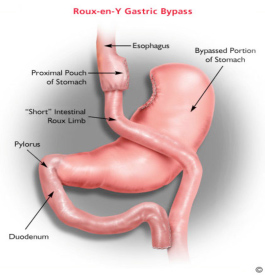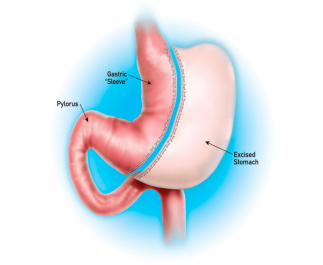Weight Loss Options
Considering This Journey of Transformation?
Weight Loss surgery is a life-changing procedure. Not only can it eliminate
most serious health risks associated with obesity, but the results often
provide an improved self-image, renewed confidence and increased energy.
However, weight loss surgery is a major operation, and it’s not for
everyone. Candidates for surgery typically exhibit one or more of the
following characteristics:
- are 100 pounds or more overweight
- have a Body Mass Index (BMI) of over 40, or
-
have a BMI of over 35 and are experiencing severe negative health effects,
such as high blood pressure or diabetes, related to being severely overweight
(Use our BMI calculator to determine your BMI)
- unable to lose weight or maintain weight loss through traditional methods
such as diet and exercise
Delivering On Our Promise to You
Learn more about why patients chose Catawba Valley Medical Center for the
most advanced care available:
- Laparoscopic Roux-en-Y Gastric Bypass
- Laparoscopic Sleeve Gastrectomy
Laparoscopic Roux-en-YGastric Bypass

At Catawba Valley Medical Center, our surgeons perform Roux-en-Y gastric
bypass, commonly referred to as gastric bypass using state-of-the-art
laparoscopic methods, resulting in less invasive procedures, fewer complications
and short hospital stays for patients.
First, the surgeon creates a small stomach (permanently reduced to an egg-sized
pouch) to restrict food intake. Next, a Y-shaped section of the small
intestine is attached to the pouch to allow food to bypass the lower stomach,
the duodenum (the first segment of the small intestine), and the first
portion of the jejunum (the second segment of the small intestine). This
reduces the amount of calories and nutrients the body absorbs.
Those who undergo gastric bypass typically lose between 50 and 70 percent
of their excess weight. Since this procedure results in greater weight
loss than other methods, it has also been more effective in improving
the health problems associated with severed obesity such as hypertension,
sleep apnea, type 2 diabetes and osteoarthritis. Gastric bypass is currently
the most effective option for long-term control of morbid obesity.
Laparoscopic Sleeve Gastrectomy

During a sleeve gastrectomy, a sleeve-shaped tube is created from a small
portion of the stomach and the majority of the stomach is removed without
bypassing the intestines or causing any gastrointestinal malabsorption.
It is purely a restrictive procedure. Food passes through the new stomach
tube directly into the intestines. Nutrients and calories are absorbed
from food normally, but the smaller stomach limits the amount of food
you can eat by making you feel full after eating small amounts of food.
Sleeve gastrectomy is performed laparoscopically and can be a permanent
surgical solution to manage weight.
Pathway to Surgery
Our experience, outcomes, dedicated staff, support group network and professional-led
aftercare contribute to our excellence in care. We have outlined the pathway
to surgery below for your convenience:
Step One: Contact our center at 828.326.2082 to receive a patient information packet
in the mail.
Step Two: Register and attend one of our free informational seminars. To view the
schedule of our upcoming seminars and to register
click here or call 828.326.2082 and speak to the Bariatric Nurse Navigator.
Step Three: If you plan to go through insurance, we will need to verify that this
surgery is a covered benefit on your policy. Certification is a different
process that will be completed prior to surgery by the surgeon’s
office on your behalf.
Step Four: Complete the patient information and medical history forms. Obtain all
insurance required medical record documentation. Complete a psychological
evaluation from the approved list in the packet that you initially received.
In addition to a referral letter from your primary care physician, you
will need to have a comprehensive physical exam which includes a thyroid
panel. You may also be required by your health insurance carrier to complete
a medically supervised weight loss program for three to six months prior
to surgery (including monthly documentation of weight, dietary, exercise
and lifestyle modification at each visit).
Step Five: When step four is completed, a surgical consultation will be scheduled.
Step Six: Insurance approval. Your application, medical records and a letter of medical
necessity will be prepared and submitted to your insurance company for
written approval. Authorization can take up to four or more weeks depending
on your insurance.
Step Seven: Pre-operative visit will be scheduled approximately 10 days prior to your surgery.
These important steps will ensure that you will be well prepared for the
surgery. We will be happy to assist you in any way as you prepare to take
the next step toward a healthier lifestyle.